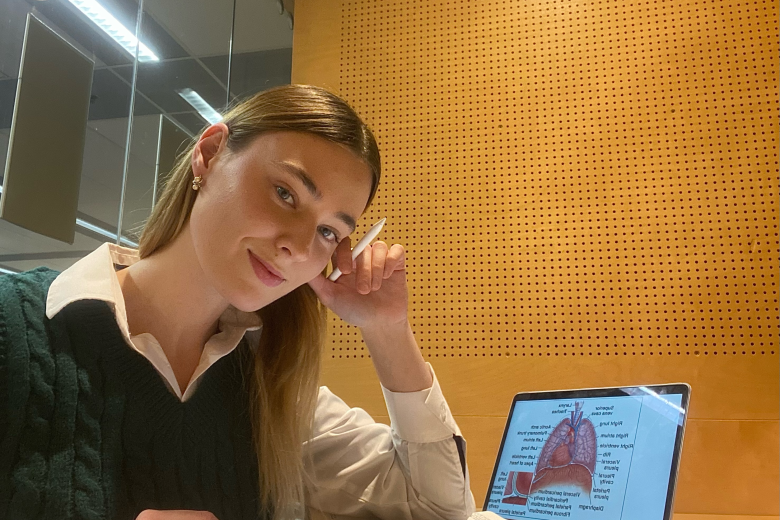Why this programme
The world faces challenging cross-border public health threats such as pandemics, climate change, health inequities, and ageing populations. Going forward, Europe will need expertise that combines an understanding of the determinants of health with knowledge about policies and interventions to protect and promote health.
The European Public Health bachelor’s programme at Maastricht University prepares you to work with organisations at all levels within Member States as well as within EU institutions. Our graduates learn about how governments and (public) health systems function and about the Treaty of the European Union and policies such as the GDPR policy related to health.
The programme introduces you to a broad range of health determinants through the study of topics such as social determinants of health and disease, environmental sustainability and climate change, lifestyle (diet, exercise, tobacco), migration and ageing, and technological innovation. You’ll study policy-level factors that influence quality, accessibility, and equity within health systems across the EU. After graduation, you are a connector between science and policy, public health and healthcare, Europe and the globe.
This programme is for you if:
- you want to improve health across borders, health systems, and societies,
- you are curious about and enjoy influencing the politics and policies shaping health in Europe,
- you seek to accrue knowledge that is interdisciplinary, international, and related to real-world policy contexts.
A European and global perspective
European Public Health at Maastricht University offers an international outlook. You will compare health systems, policies, and outcomes across European countries and explore how institutions like the EU and the WHO in Europe seek to shape public health. In your final semester, you’ll complete a four-month internship or academic placement. This experience prepares you to apply your skills in real-world, applied settings and to launch your career in international public health.
An interdisciplinary and future-ready programme
This programme is built to equip you for the public health challenges of the future. It integrates disciplines such as health law, epidemiology, economics, philosophy, data science, and policy analysis. You’ll develop skills in research, communication, and policy advocacy while addressing topics like sustainability, technological innovation, health-related lifestyles, and healthcare systems. This interdisciplinary approach gives you both a broad foundation and the flexibility to explore your interests. You’ll graduate with analytical and practical tools to shape effective, evidence-informed public health policy.
Diverse student population
You’ll join an international classroom with students from across Europe and beyond. As a result, you will not only study health and health systems in an international context, you’ll learn from your international peers as well.
From your first year, you’ll receive ongoing mentoring and supervision to support your academic and professional growth. This combination of international diversity, guidance, and hands-on experience prepares you to thrive in the dynamic field of European and global public health.
Strengths of our faculty
Problem-Based Learning
At Maastricht University, we use Problem-Based Learning (PBL) as our core educational method. This student-centred approach helps you develop essential academic and professional skills: critical thinking, teamwork, self-directed learning, and effective communication. In small tutorial groups, you’ll work collaboratively on real-life public health cases, guided by a tutor. PBL allows you to actively engage with complex topics and encourages deep learning, rather than passive memorisation. You will become an independent learnerwho is able to identify problems, ask the right questions, and find solutions. Just like a real public health professional. It’s not just about learning facts, but about learning how to learn.
Honours Programme
The PREMIUM Honours Programme is offered to motivated and talented students. In this prestigious track, you work in a multidisciplinary team on a real-world project for an external client such as a company, NGO, or public institution. You’ll gain practical experience and develop your research, professional, and leadership skills through coaching, masterclasses, and workshops.
The programme lasts about three months and requires around 250 hours of work. Upon completion, you’ll receive an Honours Certificate in addition to your diploma to help you stand out on the job market.
MaRBLe Excellence Programme
Through the Maastricht Research Based Learning programme, or MaRBLe for short, we offer talented third-year bachelor's students the opportunity to carry out their own research project. You will be guided by experienced academic staff who will help you further develop your critical thinking and research skills. This prepares you for a career in academic research or research-related positions in the business sector.
Student stories
Anna Gudimova: balancing two bachelor’s at the same time
Anna is a Greek first-year bachelor’s student who is taking on Biomedical Sciences and European Public Health at the same time.

